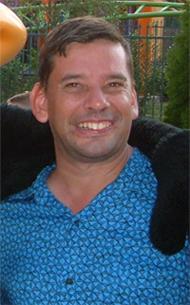The wild web campaign that convinced a Canadian corporate icon to quickly rescind its sponsorship of an anti-gay event in the US got its start in a tiny town inside America’s smallest state.
Early last week, a 44-year-old web developer named Paul Auger was listening to a Christian radio station in his Warwick, Rhode Island home. The self-proclaimed atheist activist says, “I probably listen to more Christian radio than most Christians do.”
Auger heard an advertisement for an Aug 16 picnic organized by the National Organization for Marriage. He went to the group’s website and discovered that it was meant to rally local people against the idea of same-sex weddings. He also discovered that one of the sponsors was Tim Hortons.
“Before I knew it,” says Auger, who speaks slowly due to cerebral palsy, “I started an international incident.”
He wrote a short message opposing the sponsorship and sent it to some of his favourite email lists. One of the people who read Auger’s note was Wesli Dymoke, a Rhode Island blogger.
“I was very surprised,” says Dymoke. “I thought, ‘Aren’t they from Canada?’ It doesn’t seem like something Tim Hortons would be involved in, in any way.”
On Sunday morning, Dymoke wrote an article about the issue for a website called Providence Daily Dose. Later that day, Michael Jones, the gay rights editor for Change.org, read it and started a petition. It called on Tim Hortons to back off from supplying coffee at the Aug 16 event, and urged gay rights advocates to send an email to the company’s headquarters in Oakville, Ontario.
“People jumped on this like wildfire,” says Jones, who also works at Harvard Law School’s Human Rights Program. “This campaign was the quickest in the history of the website and generated the most excitement over a short period of time.”
Within a few hours, almost 2,000 people — many of them from Canada — signed the petition. At the same time, Facebook and Twitter users posted links to Tim Horton’s online feedback form and others posted boycott threats. On Monday afternoon, the company released a short statement announcing it would no longer be involved in the Aug 16 picnic.
“I’m the guy who lit the fuse,” Auger says, proudly. “I put the information out there and people ran with it.”
He’s gratified by the message that this quick, successful campaign sends to big businesses. “The religious right has presented itself as a majority,” he says, “but when the true majority speaks up, international corporations have to respond to that. People can make change in the world, and that’s a good thing.”
- Tim Hortons controversy had origins at regional HQ
- Tim Hortons under fire for link to anti-gay fundraiser

 Why you can trust Xtra
Why you can trust Xtra


